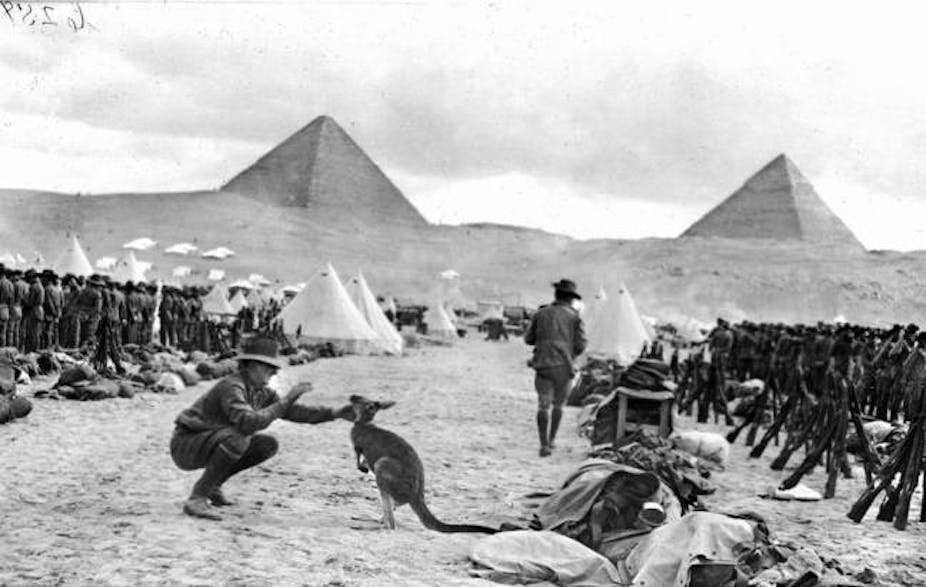Australian brands are increasingly looking to exploit national holidays like ANZAC Day. Given soft retail conditions, such efforts are understandable. But is it welcome?
Sure, there is no law against associating your product with a national holiday, but that doesn’t mean there shouldn’t be. At the end of the day a corporation exists to make its shareholders richer, not to support what the true “spirit” of a particular day may mean.
This brings us to ANZAC Day and Victoria Bitter (VB). In 2009, Ogilvy PR created a campaign for VB that would coincide with ANZAC Day. In Ogilvy PR’s own words:
VB wanted to raise more than a million dollars to support the vital welfare programs of the RSL and Legacy, to support and pay tribute to Australia’s serving and ex-serving men and women, fallen veterans and their families. VB contributed $1 from specially marked cases of stubbies and donated more than 1,500 kegs throughout April, encouraging Australians to raise a glass on ANZAC Day and pay tribute to a fallen mate.
This campaign used retired General Peter Cosgrove as the frontman, urging us to raise a glass of beer with him on the day itself. This is a nice piece of celebrity endorsement as there is a natural connection between Cosgrove’s army brand, the campaign and the message. The campaign itself was well executed, and this was reflected in the figures: over 186 pieces of coverage across different media which translated into over 40 million opportunities to see and hear the message. This alone would have been worth millions of dollars in exposure, so from most angles the campaign was a success. Most.
The campaign, which now runs every ANZAC Day and which has raised over A$5 million for Legacy and the Returned and Services League (RSL), is having to work even harder to convince people that the link between its product and social harm is nothing to be concerned about. This year, we have seen the integration of a smartphone app that includes a “wake up call” from General Cosgrove to get to the dawn service. The patriotic message is even better than previous years for its execution, structure and content. But many are concerned at the final action part of the message: raise a glass.
It is implied that by not raising a glass somehow we are not respecting the memory of those who have served or who are serving. It is also implied from the message that it is fine to go down to the dawn service, come home, and then think about the day by knocking the froth off a coldie. But this is marketing. Marketing is all about making the perception your reality.
The key part of any message is the action the brand wants you to do at the end of it to make that reality tangible. VB is not a non-profit brand. It exists to make money and to keep that happening for a very long time. And its message from this campaign can’t be any more blatant than by saying “Raise a Glass”. They are not the only company to be associating their product with April 25. But they are the one with the highest amount of social concern because of the potential harm their product can do.
Kids who spend the day at home might see a relative raising a glass of beer at 10am and saying it’s okay, because after all it’s ANZAC Day. In some houses in this country it’s sadly ANZAC Day every day. DrinkWise, the alcohol industry funded independent research group, says there are clear links between role models’ drinking behaviour - especially parents - that are then adopted by their children later on in life. There has to be concerns over connecting a positive, patriotic day with behaviour that may develop into anything but, and especially if that behaviour is done in front of the most vulnerable in our society.
There would be others who would also point to the enormous alcohol drinking problem that this country now faces who would say that encouraging drinking in such a positive way is not helping, and may in fact be encouraging some to start drinking or to carry on drinking when that is the last thing that they should be doing. Many pubs on ANZAC Day have lost any civility or reflection of sacrifice come closing time when the incidence of violence increases dramatically.
ANZAC Day is not the only public holiday to be commercialised. Easter and Christmas long ago lost their sense of being about the giving and are now focusing on making the spend the real experience. After all, instantaneous gratification is one of the side effects of modern marketing.
Yes, we should always remember ANZAC Day. Along with Australia Day, it is one of the few truly national public holidays actually observed on the day itself. If you feel strongly about what the day means then consider buying a badge, making a donation to Legacy or the RSL and attending a dawn service. To me, there is nothing more Australian than hearing the Last Post being played at a dawn service at ANZAC Day and feeling the shiver go down your spine as the solemnity of the occasion hits you as you remember the sacrifice made by those who have served or are serving.
We do not need though to raise a glass to remember that. We just need a clear head. We can do that just by standing still for the time it takes to feel the hairs on our backs tingle at dawn on April 25. Lest We Forget.

